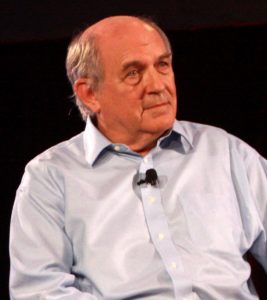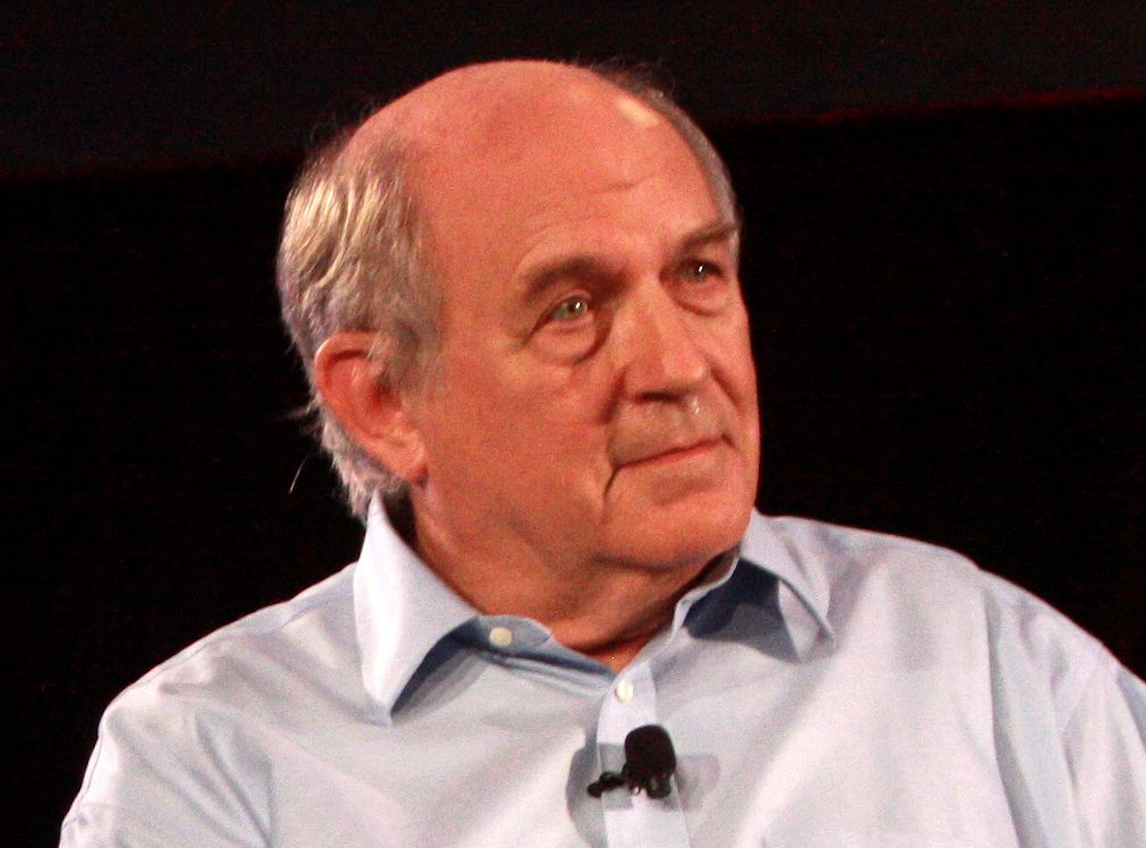Cardinal Conversations, a recently launched speaker series co-hosted by the Hoover Institution and Freeman Spogli Institute (FSI), has spurred campus-wide debate as some students have expressed discontent regarding the recent invitation of political scientist Charles Murray.
Murray will give a talk, entitled “Inequality and Populism,” next month alongside Oliver Nomellini Senior Fellow at the FSI Francis Fukuyama. The purpose of the series is to showcase two speakers of differing opinions on stage to discuss their views on topics such as politics, inequality and sexuality.
Last week, members of the group Students for a Sustainable Stanford (SSS) delivered a letter to University President Marc Tessier-Lavigne expressing their disapproval of Murray’s invitation to speak on campus as part of the series.
“Murray’s history of racism and [use of] pseudo-science to further racist ideas is deeply disturbing,” SSS wrote in its letter. “We disagree with Stanford allowing him to perpetuate his views … because it lends undue validity to dangerous ideas masquerading as academic thought.”
Murray is co-author of the book “The Bell Curve,” in which he argues for racial differences regarding human intelligence and suggests that intelligence is impacted by a mix of inherited and environmental influences. He also authored “Coming Apart,” a book that describes how a new class division is emerging among Americans as a result of his view that intelligence is a predictor of life outcomes.

SSS expressed that it takes issue with the fact that Murray’s invitation to Stanford could be perceived as an endorsement of his views by the University.
“As an educational institution, I feel like Stanford has the responsibility to only legitimize certain types of viewpoints,” said John Zhao ’18, operations officer of SSS.
Kira Smiley ’18, another member of SSS’s leadership team, agreed with Zhao.
“[Murray] has this record of saying that basically color is related to intelligence in a way, and that makes a lot of students feel unwelcome,” Smiley said. “And if he’s endorsed by [the president] then [the University] just doesn’t feel like a safe space for them.”
SSS has not received any response from the University since delivering its letter. Milbank Family Senior Fellow at the Hoover Institute Niall Ferguson, who holds a leadership role in organizing Cardinal Conversations, expressed his full support for bringing speakers like Murray to campus.
“We have said from the outset that our goal is to broaden the minds of our students by letting them hear voices they might not otherwise hear,” Ferguson wrote in an email to The Daily. “I hope that left-leaning students will come and hear what conservative-leaning speakers have to say, just as right-leaning students will give Cornel West a fair hearing when he comes to speak in October.”
Members of SSS said they felt that hosting Murray at Stanford goes beyond simply giving students exposure to alternate perspectives.
“I don’t think that Stanford should give [him] that platform,” Zhao said. “There comes a certain point where it does more harm to provide a platform for someone with such an extreme and hateful viewpoint.”
However, organizers of Cardinal Conversations, including Director and Senior Fellow at the FSI and political science professor Michael McFaul and student representatives on a committee, view their initiative as more than simply a mouthpiece for controversial speakers.
“The intention behind Cardinal Conversations is to challenge speakers, to question their ideas and to have speakers who don’t necessarily agree on the same things have to defend their viewpoints in front of another speaker and in front of an audience,” Associated Students of Stanford University (ASSU) President and student representative Justice Tention-Palmer ’18 said. “I think [that] is very different than inviting a controversial speaker by himself to speak to an audience and to address them.”
The organizers also acknowledged that disagreement is an inevitable byproduct of the initiative.
“The point of Cardinal Conversations is to start a conversation on campus,” Tention-Palmer explained. “I think students are going to continue to have opinions and differing viewpoints.”
McFaul, who also serves as the Peter and Helen Bing Senior Fellow at the Hoover Institution, said that he welcomes the criticism and is glad students are taking a stance.
“I’m glad students are engaged,” he said. “I think it’s fantastic students are reacting to [Murray].”
McFaul and members of the student committee added that Cardinal Conversations remains a work in progress. McFaul in particular stated that he wants to increase the diversity of invited speakers in terms of ideology, ethnicity, gender and geographic origin.
“The only way this will be successful is if we have deep engagements with a diverse student body,” he said. “I think we have a great set of speakers for the spring, but they’re not as diverse as I would [have] liked.”
Additionally, McFaul hopes to expand and diversify the student committee, which currently only includes representatives from Stanford Politics, The Stanford Review, The Stanford Daily, The Stanford Sphere and ASSU.
“My view is that we should have everybody there who wants to be,” he said. “There shouldn’t be any criteria.”
Members of SSS agreed with McFaul and suggested that the Students of Color Coalition as well as various community centers on campus should also be represented.
Tention-Palmer and McFaul both expressed that they are open to receiving feedback from students in an effort to improve the events.
“This is an event designed to meet the interest of students,” Tention-Palmer said. “In the same way that as executives [in the ASSU], we’re constantly looking for [student] viewpoints, that’s true of this committee as well.”
McFaul stated that students can contact them through email or on Twitter with feedback about the program.
“We made the decision to start with an imperfect product rather than wait for perfection,” McFaul said. “But I think that raises the bar for us in the fall to diversify the topics [and] the panelists.”
The first event in the Cardinal Conversations series will occur tomorrow at 7 p.m. in Hauck Auditorium, where Palantir founder Peter Thiel and LinkedIn co-founder Reid Hoffman will discuss “Technology and Politics.”
Contact Julia Ingram at jmingram ‘at’ stanford.edu.
